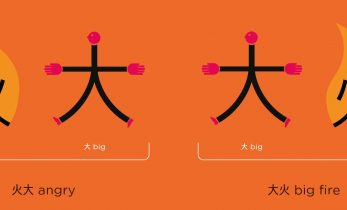Greater than 3 minutes, my friend!
How to Find Your Niche As a Translator Specializing for Better Rates and Greater Job Satisfaction
Now more than ever, translators face downward pressure on rates. Fly-by-night translation agencies seemingly pop up out of nowhere, promising to offer 100s of languages to clients all over the world–and at rock bottom prices to boot.
So what is a translator to do? How can someone looking to work in the language services industry not only eke out a living, but actually thrive?
In theory, the answer is simple: find your niche.
What’s not so simple, however, is how to do so. How do you figure out you specialization? And, going further, how do you actually put that into practice, find clients, and become specialized in your own sub-industry? I’ve come up with three action items you can do right now to start the process and find your niche.
1. Don’t get your Bachelor’s degree (or even your Master’s degree) in languages or translation.
I know, I know. This is a translator website and we should all be pro-translation studies. But hear me out on this one!
While I definitely think translation or language degrees have their merit (mostly for experienced translators), I do not think they are necessary to be successful in this industry. It is a given that in order to be a translator one obviously has to be fluent in a foreign language. However, I believe that obtaining a degree in foreign language is a waste of time. Foreign language degrees don’t really teach the business of being a translator. On the other hand, a degree in a specialization subject such as chemistry, finance, or law is far more useful for our industry. Even better if that degree is taught in a foreign language in the country of that language’s origin.
Think like a client. Would a client rather hand off a high level legal English to Spanish document to a translator who studied law in Spain or to a generalist who studied Spanish in the United States? Clients would by and large choose the former. So why wouldn’t you want to be that translator?
If you’re thinking about starting–or furthering–your formal education, it might be prudent to consider studying a subject that interests you and could “translate” well to a specialization or a traditional career (I love puns). In other words, find your niche and see if you can swing studying it in your foreign language.
2. Think about what you love to do or what excites you. That’s your specialization.
Are you passionate about something like bird watching or fashion history? Could you read voraciously on this topic? Do you attend industry events (more on this below)? Have you become sort of an informal expert on the matter? That could be your specialization!
Anything you are passionate about–and love learning–is a viable path for specialization. And you can get as specific as you want, too. I mean, I translate for people seeking Italian dual citizenship by descent. You can’t get any more specific than that! When a client needs a translation of an obscure subject that most people don’t know about (but you do), you automatically become the go to.
So get involved. Find something you love and find like-minded people. Mention you are a translator. Heck, even go to trade shows or industry events and hand out a business card. How many other translators do you think show up at medical conferences or food trade shows? Not many. Now’s your chance!
3. Try and work in a rare language combination.
This advice might not be practical to all, but it’s still good. While it is true that certain language combinations, even if rare, are not particularly in demand, the reverse is also true. You may find that your language combination is not only in demand, it’s also difficult for clients to obtain. I’ll use my own experience as an example: I predominantly work in the IT <> EN pair which is not necessarily groundbreaking stuff. However, I am also a fluent speaker of Sicilian and have done tons of projects in Sicilian to English. And best of all? Since it’s a rare language combination, I can ask premium prices far and above Italian to English. Clients get what they want, the translator gets paid a better rate, and both parties go away happy.
Other Things You Can Do
- Go after direct clients exclusively. They pay better and will more often require a specialist. Agencies work with all types of clients so it’s rare you’ll always get work in your niche from them every time.
- Invest in marketing your services. Many translators hate the business side of the job but it’s a fact of life. If you are going to be a freelancer, you need people to find you. So invest in marketing; open a blog, get a website, make business cards, etc. Do whatever you have to do to get noticed.
- Become an authority on your subject matter even outside of the translation realm. Get booked on podcasts, volunteer to speak at events, etc.
Conclusion
Do you have a specialization? If so, how did you find it? If you could go back in time and tell your old self what you know now about specializing and finding your niche, what would you say?




